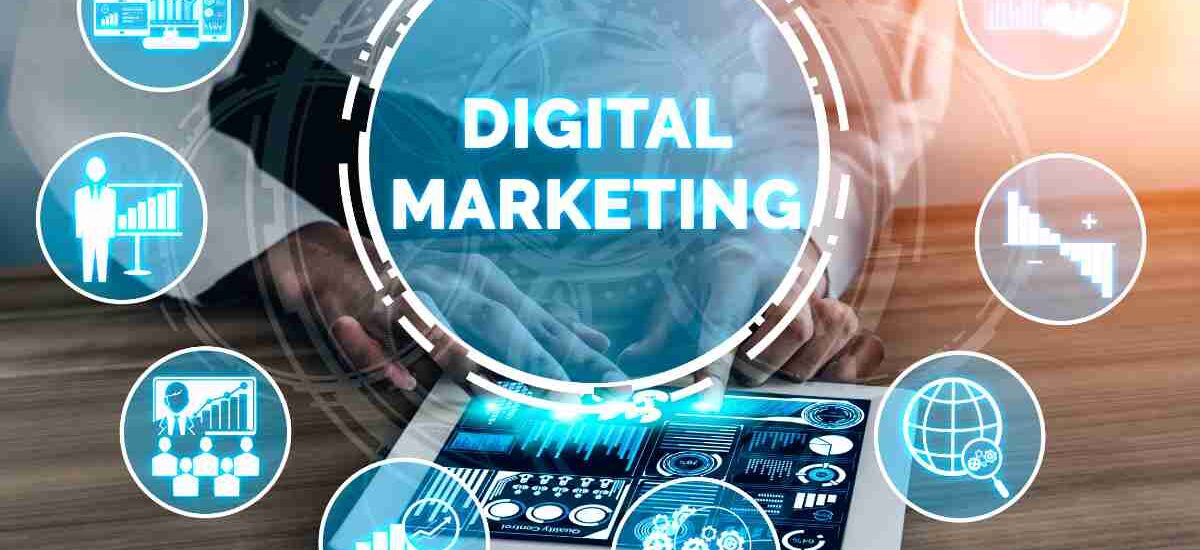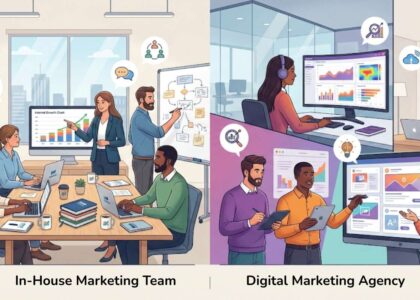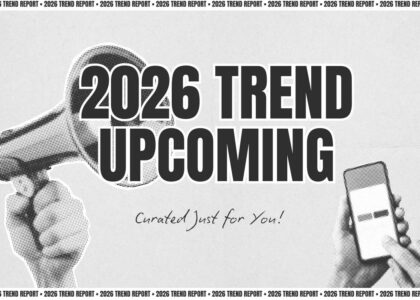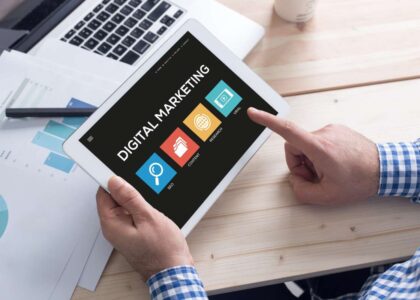Introduction
In today’s fast-paced digital world, businesses are constantly looking for ways to expand their online presence. This is where digital marketing comes into play. If you’re someone who is interested in technology, creativity, and data-driven decision-making, then a career in digital marketing might be perfect for you. The good news? You don’t need a degree to get started. You just need the right knowledge, skills, and strategy.
This blog will guide you through everything you need to know about starting a career in digital marketing. From understanding the different domains to acquiring hands-on experience, we’ll cover it all.
Understanding Digital Marketing
Before diving into the career path, it’s important to understand what digital marketing is. Digital marketing refers to promoting products or services using digital channels such as search engines, social media, email, and websites.
Key Areas of Digital Marketing:
- Search Engine Optimization (SEO) – Optimizing websites to rank higher in search engine results.
- Search Engine Marketing (SEM) – Running paid advertising campaigns on search engines like Google.
- Social Media Marketing (SMM) – Promoting brands on platforms like Facebook, Instagram, LinkedIn, and Twitter.
- Content Marketing – Creating valuable content (blogs, videos, infographics) to attract and retain customers.
- Email Marketing – Sending targeted emails to engage and convert potential customers.
- Affiliate Marketing – Earning commission by promoting third-party products.
- Influencer Marketing – Partnering with influencers to promote products or services.
- Web Analytics – Analyzing data to improve marketing strategies.
Step-by-Step Guide to Starting a Career in Digital Marketing
1. Develop the Right Mindset
Digital marketing is an ever-evolving field. You need to be open to learning, experimenting, and adapting to new trends. Unlike traditional jobs, digital marketing demands continuous upskilling.
2. Learn the Basics of Digital Marketing
There are many free and paid resources available online to help you learn digital marketing. Some of the best platforms include:
- Google Digital Garage – Free certification courses by Google.
- HubSpot Academy – Free courses on inbound marketing and content marketing.
- Coursera & Udemy – Paid and free courses covering various digital marketing topics.
3. Start with SEO and Content Marketing
SEO and content marketing are the foundation of digital marketing. Understanding how search engines work and how to create high-quality content will give you a strong start.
How to Learn SEO:
- Learn about keyword research and how to use tools like Google Keyword Planner, Ubersuggest, and Ahrefs.
- Understand on-page SEO (meta tags, headings, URLs) and off-page SEO (backlinks, social signals).
- Get familiar with Google Search Console and Google Analytics to track website performance.
How to Learn Content Marketing:
- Practice writing blogs on trending topics in your niche.
- Learn how to create engaging headlines and SEO-optimized content.
- Understand different types of content, such as blogs, infographics, and videos.
4. Get Hands-on Experience
Learning theory is important, but applying that knowledge is what will set you apart. Here’s how you can gain experience:
- Start a blog or website and apply SEO techniques.
- Create social media pages and run small ad campaigns.
- Work on real projects by offering freelance services on platforms like Upwork, Fiverr, and Freelancer.
- Volunteer for internships or unpaid projects to gain industry exposure.
5. Build a Strong Portfolio
Your portfolio is your resume in digital marketing. Include case studies, project details, and performance metrics from your previous work.
6. Master Social Media Marketing
Social media platforms are powerful tools for brand awareness and lead generation. You should:
- Understand the algorithms of platforms like Facebook, Instagram, LinkedIn, and Twitter.
- Learn how to create engaging visual content using tools like Canva and Adobe Spark.
- Experiment with paid ads on Facebook Ads Manager and Google Ads.
7. Learn Email Marketing & Automation
Email marketing is an essential skill for digital marketers. Learn how to:
- Create compelling email copies.
- Use email marketing tools like Mailchimp, ConvertKit, and ActiveCampaign.
- Set up automation for lead nurturing and customer engagement.
8. Stay Updated with Industry Trends
Digital marketing is dynamic. Follow industry experts and stay updated with:
- Neil Patel’s Blog (SEO & Content Marketing)
- Moz Blog (SEO Updates)
- Social Media Examiner (Social Media Marketing Trends)
- Google’s Search Central Blog (SEO Algorithm Updates)
9. Get Certified
Certifications can add credibility to your resume. Consider getting certified in:
- Google Ads Certification
- HubSpot Content Marketing Certification
- Facebook Blueprint Certification
- SEMrush SEO Certification
10. Apply for Jobs or Start Your Own Agency
Once you have experience and certifications, start applying for jobs. Look for roles like:
- SEO Analyst
- Content Marketer
- PPC Specialist
- Social Media Manager
Alternatively, if you prefer independence, start your own digital marketing agency or work as a freelancer.
Common Challenges and How to Overcome Them
- Too Much Information Overload – Stick to learning one skill at a time.
- Lack of Hands-on Experience – Work on your projects or intern with startups.
- Not Getting Clients as a Freelancer – Build a strong online presence and use LinkedIn for networking.
- Struggling with Algorithm Updates – Keep experimenting and learning from data.
Conclusion
Starting a career in digital marketing is exciting and rewarding. It doesn’t require a traditional degree, but it does demand dedication, learning, and hands-on practice. If you follow this guide step by step, you’ll be well on your way to building a successful career in digital marketing.
Now it’s your turn! Start learning, apply your knowledge, and take action today. The digital world is waiting for you!






